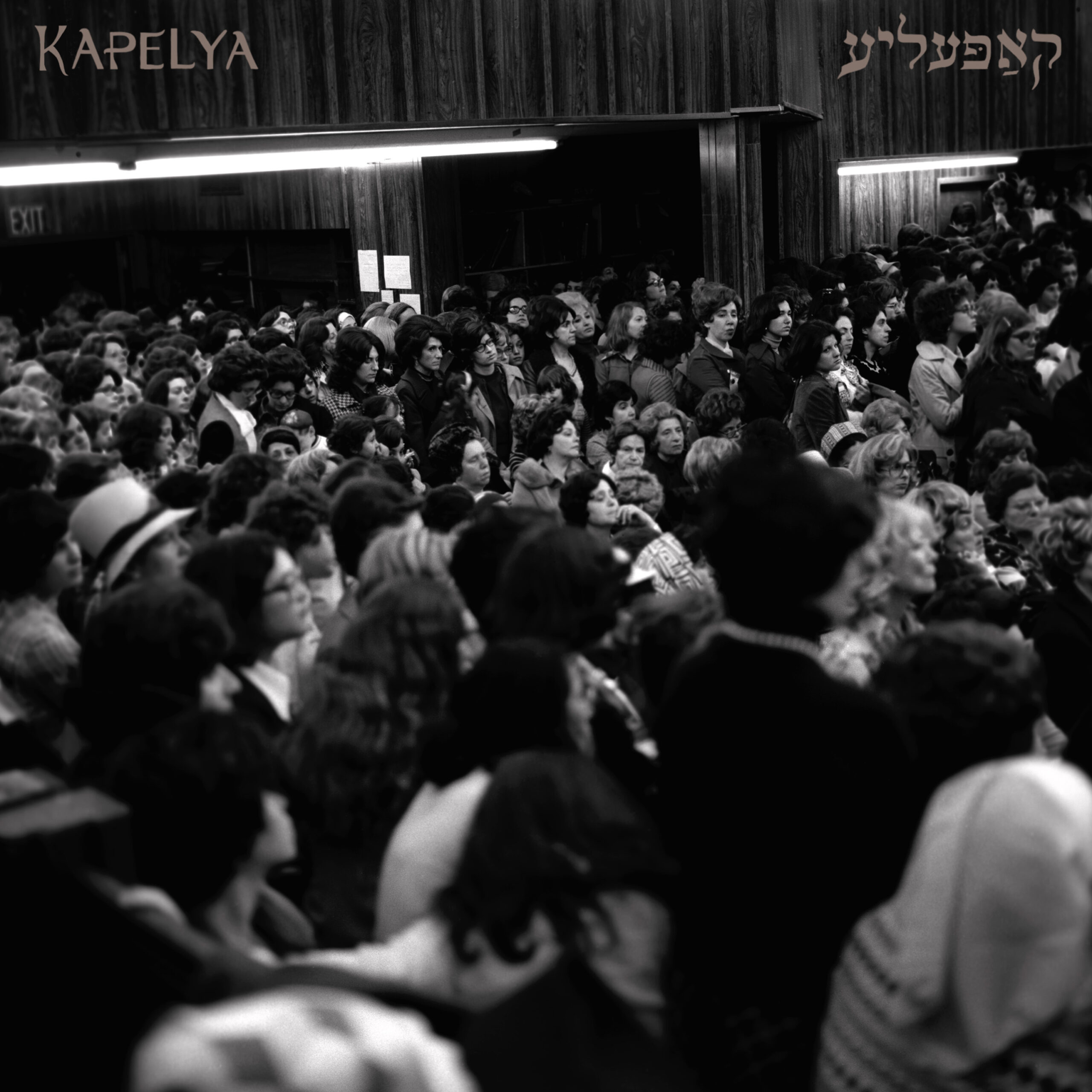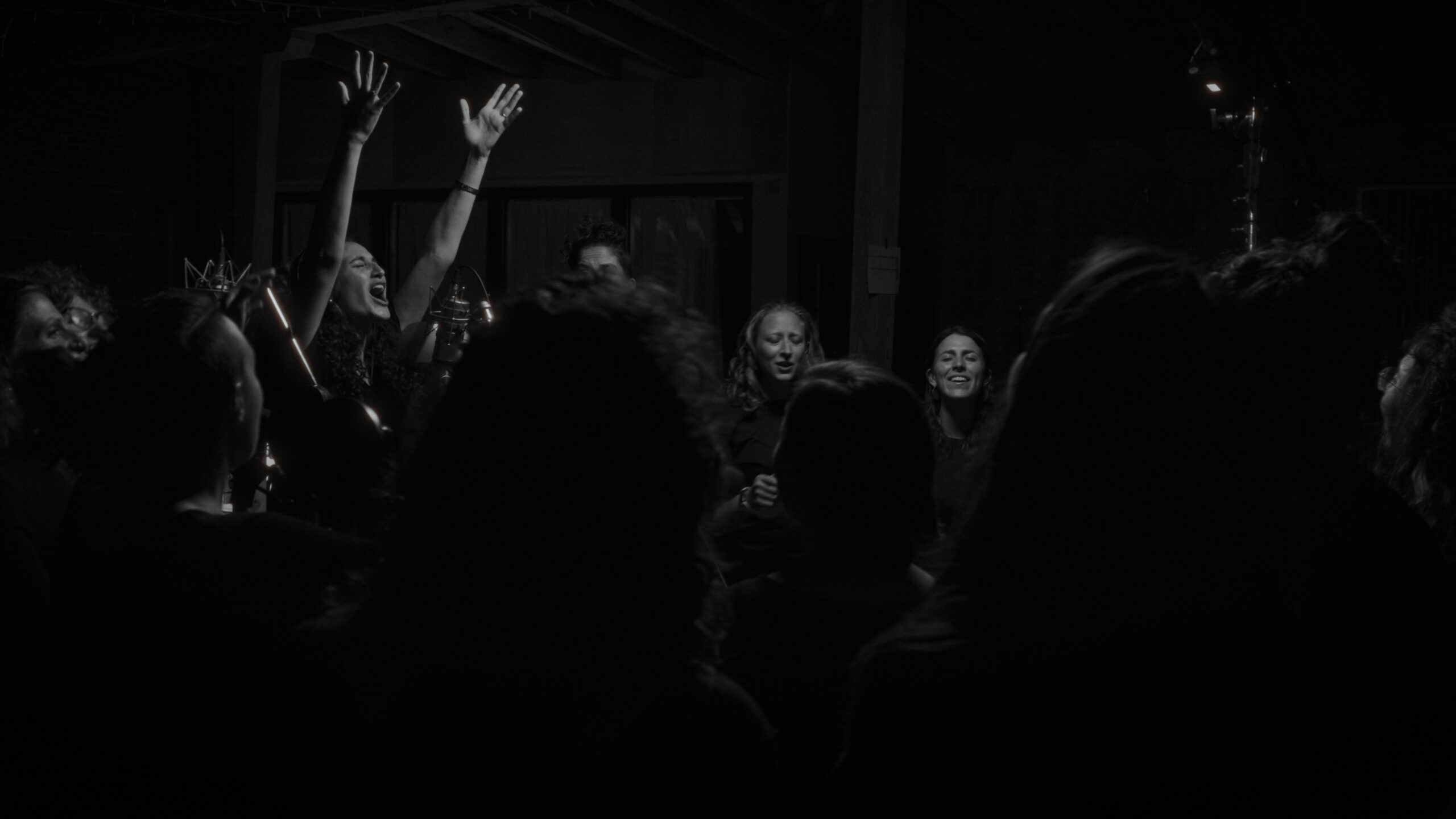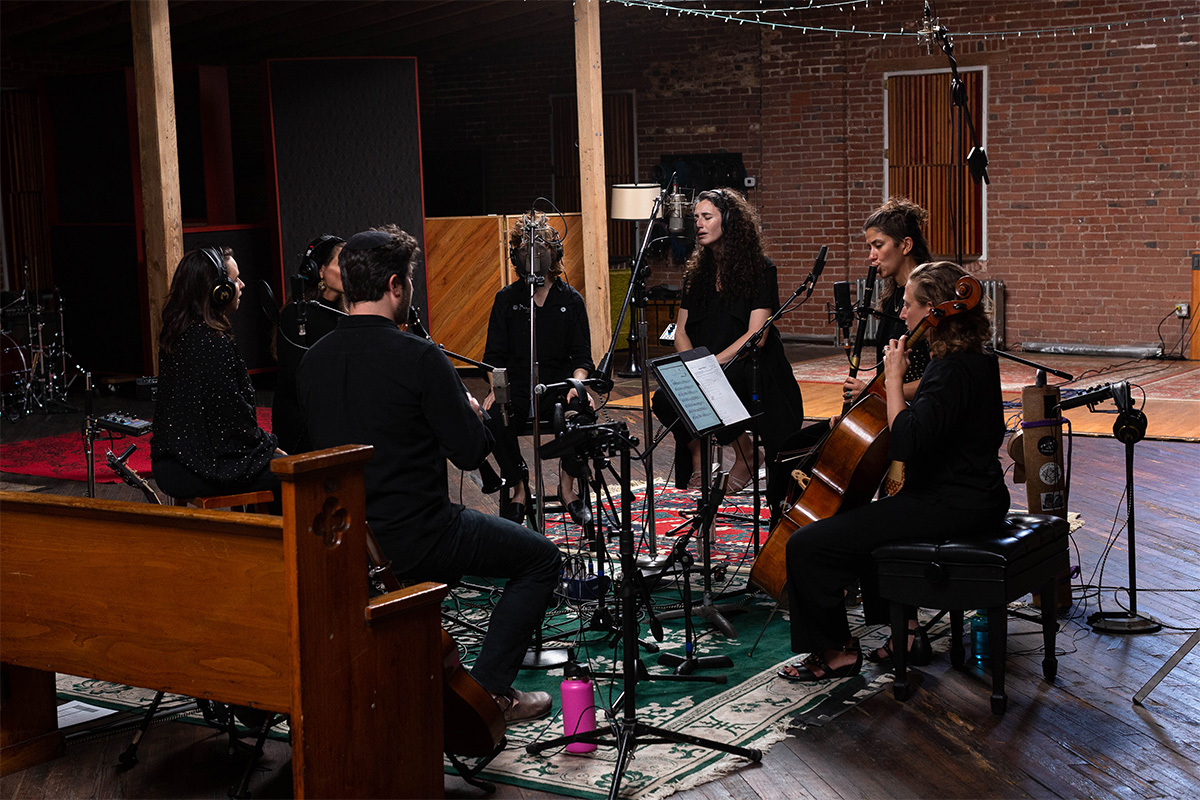Chana Raskin stands encircled by a group of women. Her eyes closed, she conducts with hands and soul, her body moving to the wordless melody she rouses from the group. The women follow Chana’s lead, relying on her at first but eventually moving with the music of their own accord. Soon, their eyes closed, the niggun is a part of them just as it is a part of Chana. They know it in their mouths, in their hearts and in their bodies enough to begin making their own meaning of it. They begin to remember, to awaken something that was always there.
“Kapelya” — the debut album from RAZA, a musical movement led by Chana Raskin — records some of the majesty of this moment. The album’s songs are not new, the melodies inherited. For years, Chana has been “‘exploring the feminine sound in old Chabad Hasidic melodies”’ by gathering circles of women to sing them. The album will provide the first ever professional recordings of Hasidic niggunim — mystical prayers or songs — sung by women.
The legend goes that another Chana, Chana Rachel Verbermacher, the Maiden of Ludmir, was one of the few women in the Hasidic movement who functioned as a rebbe, a communally-recognized spiritual leader of her community. You won’t find her name embossed in gold letters on the spine of a sefer (religious book); you won’t hear teachings attributed in her name. What we know of her is largely thanks to the sacred oral tradition, which tells us that Chana was devoted in prayer and committed to learning Torah from a young age. That she was the only daughter of her educated and wealthy father, and that she lost her mother suddenly and tragically. We know that Chana found home in the Beit Midrash, among Jewish texts, and at the headstone of her mother. As an adult, she vowed never to marry but instead committed her soul to spiritually guiding the people of Ludmir, offering blessings and making miracles.
Chana is a rare ancestor whose name we know thanks to oral preservation and dedicated scholarship. She was a maverick among men. And even though she is somewhat singular in her Hasidic legacy, she is only one of countless women whose names we cannot know, ancestors whose stories were hushed, silenced or never fully realized. She is the most famous of the firzogerin, women in Ashkenazi communities who stood at the front of the women’s balcony and translated prayers from Hebrew into vernacular Yiddish. These women also colored the liturgy with their own prayers to sanctify the particular aspects of their home-based lives: prayers for braiding challah, for accompanying children to school, for menstruating and pregnancy. The firzogerin translated and transmitted prayer and Torah for centuries, granting their peers access to communal tefillah for the first time, guiding ancient words and melodies through new bodies. And today, Chana Rachel’s legacy glimmers in the prayerful hands of another who shares her name. Following in the tradition of firzogerin before them, Chana Raskin’s singers — women from across the Jewish spectrum, from within and beyond the Chabad movement — are giving new voice to ancestors who have yet to be invoked through the sacred rite of song.

The “Kapelya” album cover features a photograph of some of these ancestors— taken by Velvel Schildkraut in 1975 at a women’s farbrengen (a Hasidic spiritual gathering) at 770 Eastern Parkway, the Chabad Lubavitch World Headquarters. While the traditional Chabad farbrengen fills the room with song, women in the Chabad movement are not permitted to sing in front of non-familial men — not even in front of one man, the Rebbe, whose presence in the photograph is evoked only by the eyes of the room full of women gazing towards him.
770 is where Raskin spent her childhood. She learned these melodies at the knees of her father, but in her adulthood she seeks to invite the hidden to be revealed, to draw out a sound once kept secret from the public ear. Chana is a firzoger, a meaning-maker of sacred material who translates from one realm to another, allowing more and more people access to this beautiful, holy music.
“I did not make this album… it feels so deeply like there were other forces at play that made it their business that this album get recorded, that this sound get recorded for the masses to hear,” Raskin shared with me. When speaking about the recording process, she tearfully recalls the process of filling the room with souls. “Right before we started recording with the whole group, we invited in all the composers of the niggunim, the rebbes who composed them. We invited in anybody who anyone in the room wanted to invite personally, either to sing with them or to bear witness to their voice. And then we invited the women and people of generations past who no doubt liked singing these songs. You could feel the souls coming in. It was so visceral, we really felt like we were body to body, soul to soul, packed in that room.”

Upon listening to “Kapelya,” released February 22 on Rosh Chodesh Adar, I think about these women who have been singing these melodies for years, who gathered in circles long before us, who hummed as they prepared Shabbat meals and kneaded their challah dough; who sang these songs gently to their children as lullabies; who carried these niggunim with them as they walked through the market, from the mikveh, in the balconies; who kept these melodies close as they fled for their lives from persecution. Did they sound like us? And in generations to come, will our own voices be heard? What will we sound like as ancestors? For now, it is a blessing to receive these new sounds in an old form, and to begin to remember something that was always there.



